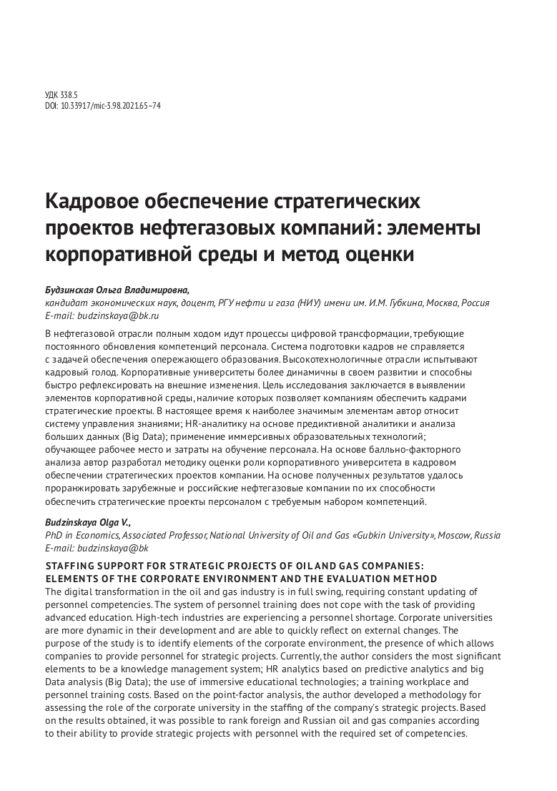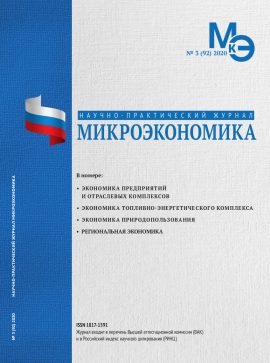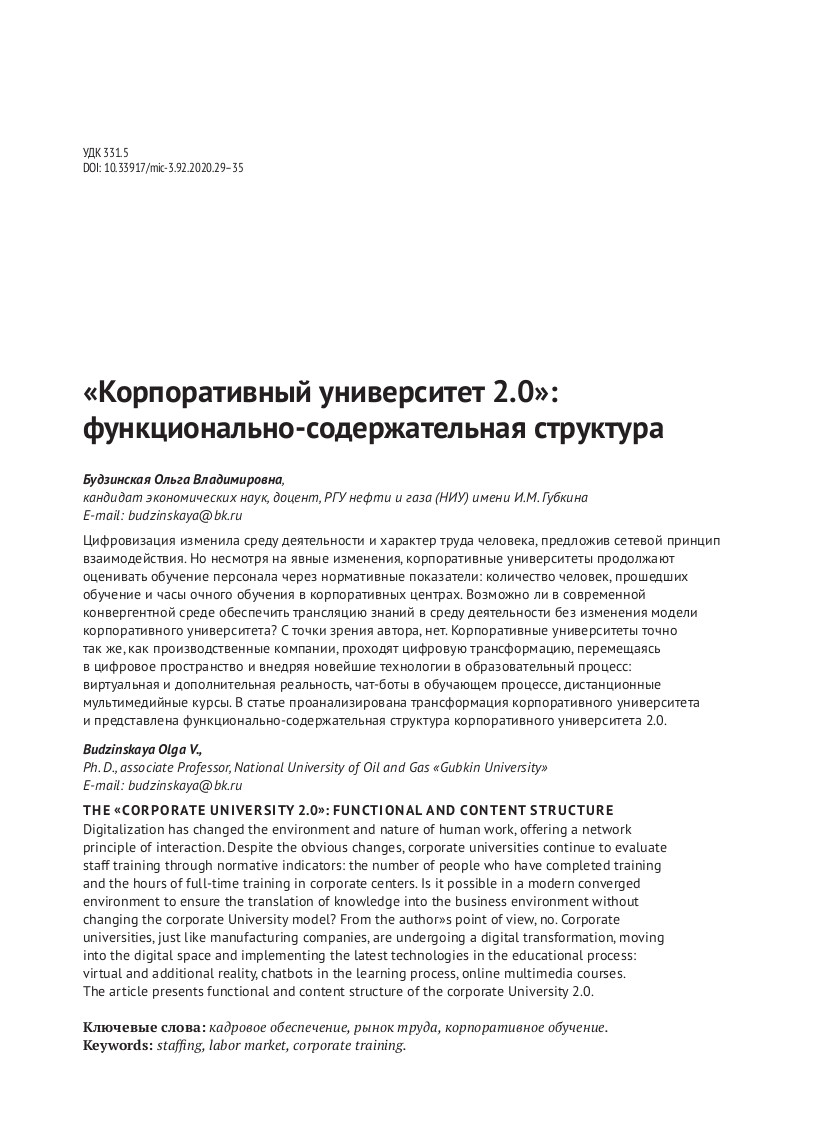Staffing support for strategic projects of oil and gas companies: elements of the corporate environment and the evaluation method
DOI: 10.33917/mic-3.98.2021.65-74
The digital transformation in the oil and gas industry is in full swing, requiring constant updating of personnel competencies. The system of personnel training does not cope with the task of providing advanced education. High-tech industries are experiencing a personnel shortage. Corporate universities are more dynamic in their development and are able to quickly reflect on external changes. The purpose of the study is to identify elements of the corporate environment, the presence of which allows companies to provide personnel for strategic projects. Currently, the author considers the most significant elements to be a knowledge management system; HR analytics based on predictive analytics and big Data analysis (Big Data); the use of immersive educational technologies; a training workplace and personnel training costs. Based on the point-factor analysis, the author developed a methodology for assessing the role of the corporate university in the staffing of the company’s strategic projects. Based on the results obtained, it was possible to rank foreign and Russian oil and gas companies according to their ability to provide strategic projects with personnel with the required set of competencies.





